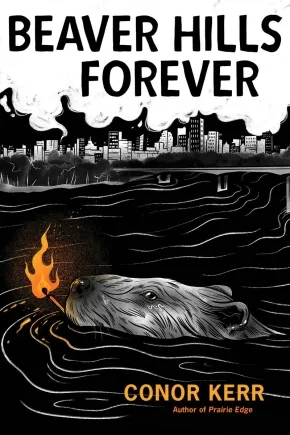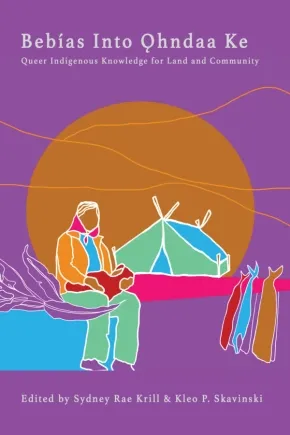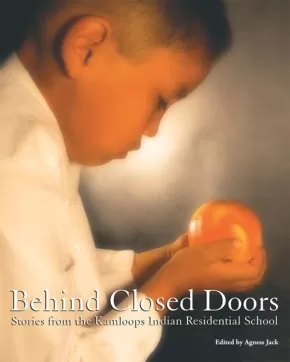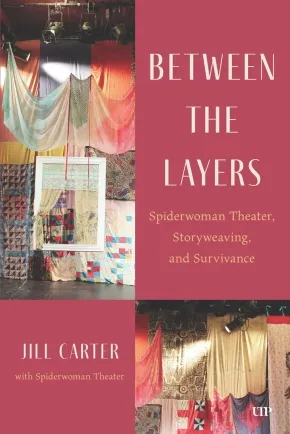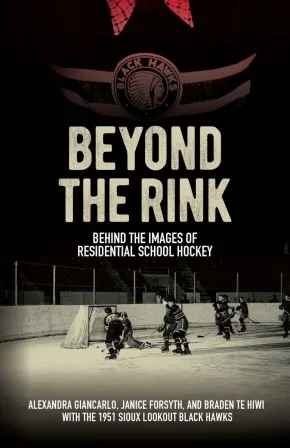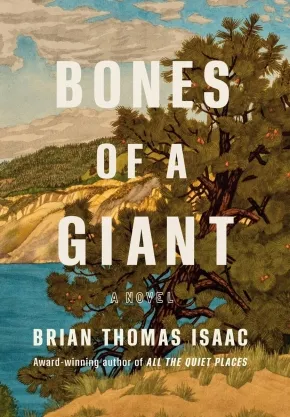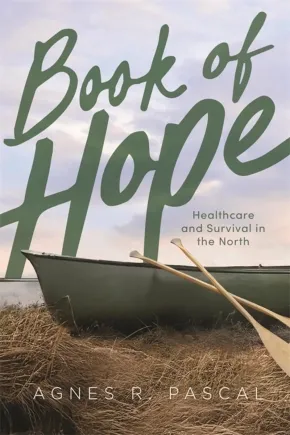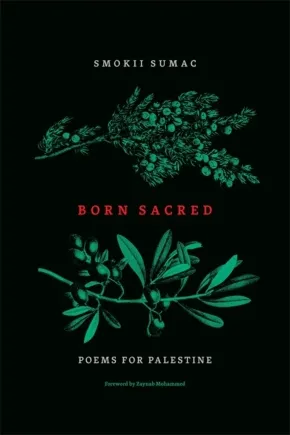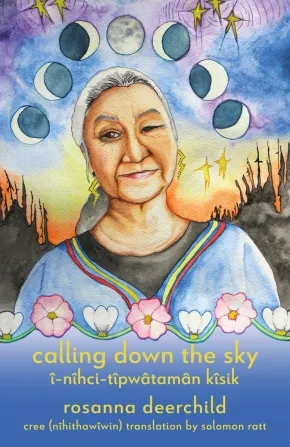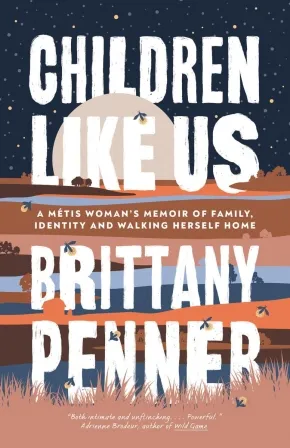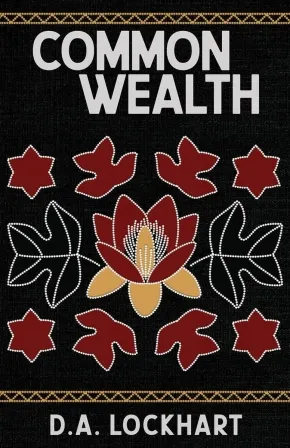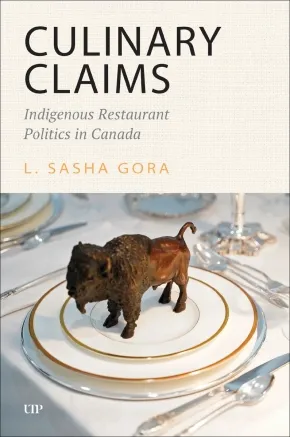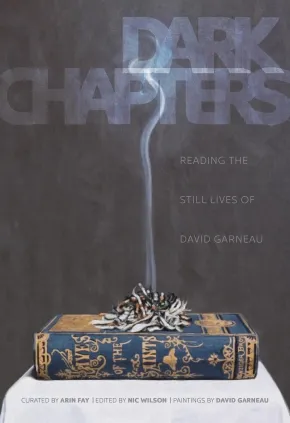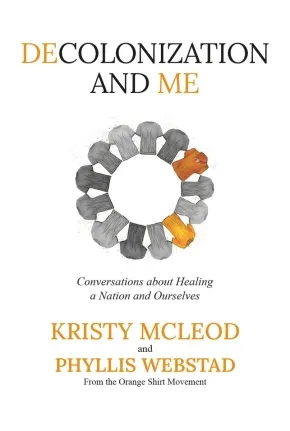
Indigenous Peoples in Canada
16
-
30
of
1080 Results;
Sort By
Go To
of 72
Beaver Hills Forever: A Metis Poetic Novella
$21.95
Format:
Paperback
Text Content Territories:
Indigenous Canadian; Métis;
Reading Level: N/A
ISBN / Barcode: 9781834050089
Synopsis:
Synopsis:
An irreverent and playful novella of Metis voices that reflects the complexities of contemporary prairie life
Conor Kerr's 2024 novel Prairie Edge was a finalist for both the Giller Prize and the Atwood Gibson Writers' Trust of Canada Fiction Prize. His latest book, Beaver Hills Forever, takes a riotous, uncompromising look at the intertwined lives of four characters, each an abstract expression of the few paths available to Metis people on the Prairies. In alternating poetic verses, Buddy, Baby Momma, Fancy University Boy, and Aunty Prof share their inner dreams, hardships, delusions of grandeur, and existential plights. While the messy day-to-day is created by their own doing, the lives of these four individuals are doubly compromised by Canada's colonial education system and resource extraction industries.
A beguiling and genre-bending work, Beaver Hills Forever offers a moving, necessary exploration of education, labour, and the dynamic, ever-changing bonds that bring us back to each other. Here is a diverse, funny, pitch-perfect chorus of voices that rings loud and true over the wide prairie landscape.
An irreverent and playful novella of Metis voices that reflects the complexities of contemporary prairie life
Conor Kerr's 2024 novel Prairie Edge was a finalist for both the Giller Prize and the Atwood Gibson Writers' Trust of Canada Fiction Prize. His latest book, Beaver Hills Forever, takes a riotous, uncompromising look at the intertwined lives of four characters, each an abstract expression of the few paths available to Metis people on the Prairies. In alternating poetic verses, Buddy, Baby Momma, Fancy University Boy, and Aunty Prof share their inner dreams, hardships, delusions of grandeur, and existential plights. While the messy day-to-day is created by their own doing, the lives of these four individuals are doubly compromised by Canada's colonial education system and resource extraction industries.
A beguiling and genre-bending work, Beaver Hills Forever offers a moving, necessary exploration of education, labour, and the dynamic, ever-changing bonds that bring us back to each other. Here is a diverse, funny, pitch-perfect chorus of voices that rings loud and true over the wide prairie landscape.
Reviews
"Not every Metis kid / Needs a sad story," says a character in Conor Kerr's propulsive and deeply entertaining new work, where each bone-clean sentence holds a galaxy of stories in its marrow. Kerr is part of a vital contemporary movement that is reimagining what our literatures can be and what they can do. Beaver Hills Forever is a reminder that laughter and passion are as much a part of the narrative as struggle. In these pages, you'll find voices that demand to be heard, felt, and remembered." — Carleigh Baker, author of Last Woman and Bad Endings
"Much like his prose, Conor Kerr's Beaver Hills Forever imbues the language of everyday Indigenous life with a poetic charm that is just incredibly readable and relatable. This book is truly multitudinous: a love story, an anti-love story, a critique of neoliberalism, an ode to the Prairies, and, above all, proof that even our smallest desires are worthy of sustained poetic consideration." — Billy-Ray Belcourt, author of Coexistence
"Beaver Hills Forever is full of raunch and riot. Conor Kerr's ability to gravitate around the embodied truths of institutional whiteness, class, settler colonization, and the Indigenous (Metis) experience in the moraine of amiskwaciy is rebellious in its desire to not pathologize or rationalize the violent backdrops of its animate setting. With his skilled hand, Kerr makes sure there is "room for [all] in the digital economy of the Future." — Joshua Whitehead, author of Jonny Appleseed
"Aho, fancy reader! Welcome to Conor Kerr's Beaver Hills Forever. We'll laugh, we'll cry. We'll smoke, we'll die. Etc, etc. Beaver Hills Forever is funny, heartfelt, poetic, badass. It's Bald Boy, Goodbye, Sad Story, Indigenous Canon. Etc, etc. Magpie cackles, Metis literatures, Aunty Prof wonders, realizes, smudges, feel-good energy. Fuck all the ongoing bullshit internal politics and academic distortion and just hear the truth, etc, etc." — Jordan Abel, author of Empty Spaces and NISHGA
Additional Information
88 pages | 6.00" x 9.00" | Paperback
Bebías Into Ǫhndaa Ke: Queer Indigenous Knowledge for Land and Community
$28.00
Editors:
Format:
Paperback
Text Content Territories:
Indigenous Canadian;
Reading Level: N/A
ISBN / Barcode: 9781927886922
Synopsis:
Synopsis:
Bebías Into Ǫhndaa Ke: Queer Indigenous Knowledge for Land and Community is a powerful collection of essays, stories and conversations that provide us with a diverse roadmap for navigating and overcoming hate, supporting queer Indigenous kin, and revitalizing radical ethics of care for building healthy, inclusive, and self-determining lands and communities. A celebration of trans, queer, and Two-Spirit Indigenous brilliance, with an intentional inclusion of voices from the North (the Yukon, Northwest Territories, Inuvialuit and Nunatsiavut), the essays in this collection offer a wealth of queer Indigenous theory, experience, and practices, with a unique emphasis on the critical role of land in these conversations.
The contributors, who range from young activists, artists, families, and both emerging and established scholars, provide insightful and transformative queer perspectives on a number of pertinent topics, including: knowledge reclamation, resurgence, nation-building, community life and governance, cultural revitalization, belonging, family relationships, creative practice, environmental degradation, mental health and wellbeing, youth empowerment, and Indigenous pedagogy. Amidst the ongoing violence of settler colonization, and its legacies of exclusion and erasure that continue to target queer, gender-diverse and Two-Spirit Indigenous people, this collection is an invaluable gift and resource for our communities, showing us that a different world is possible, and reminding us that queer Indigenous people have always belonged on the land and in community.
Additional Information
240 pages | 6.00" x 9.00" | Paperback
Behind Closed Doors: Stories from the Kamloops Indian Residential School
$32.95
Editors:
Format:
Paperback
Text Content Territories:
Indigenous Canadian;
ISBN / Barcode: 9781926886770
Synopsis:
Synopsis:
Behind Closed Doors features written testimonials from thirty-two individuals who attended the Kamloops Indian Residential School. The school was one of many infamous residential schools that operated from 1893 to 1979. These storytellers give voice to the thousands as they remember and share with us their stolen time at the school; many stories are told through courageous tears.
Additional Information
202 pages | 11.50" x 8.00" | Paperback
Between the Layers: Spiderwoman Theatre, Storyweaving, and Survivance
$44.95
Format:
Hardcover
Text Content Territories:
Indigenous Canadian;
Reading Level: N/A
ISBN / Barcode: 9781487559069
Synopsis:
Synopsis:
This meditation on the poetics of re-worlding follows the threads of Spiderwoman Theater’s Storyweaving practice back to its Guna and Rappahannock sources to illuminate its history, mechanics, and development for coming generations.
The Spiderwoman Theatre, the longest-running Indigenous theatre company in North America has heralded the revolutionary methodology of Storyweaving for generations of Indigenous artists. Storyweaving is a distinct methodology that governs the dramaturgical structure and performed transmission of the company’s plays on the contemporary stage. The practice of Storyweaving predates written history. It has been (and remains) specific to tribal storytellers across the continent.
The reclamation, then, of this aesthetic legacy by contemporary Indigenous storytellers is a crucial act of recovery. Jill Carter, an Anishinaabe-Ashkenazi theatre-worker and scholar, examines the process and development of Storyweaving. She studies how Storyweaving imagines and architects a functional framework that is being adopted and adapted by artists from myriad nations to create works (on the page and stage) that facilitate the healing, transformation, and survivance of their communities. Between the Layers pays respects to the teachers and visionaries that moulded this practice and encourages future generations to continue its legacy, while making a much-needed contribution to the study of Indigenous theatre and performance.
In its painstaking documentation of the Storyweaving artform, Between the Layers refuses the devaluation, erasure, and suppression of Indigenous culture, while contributing to the dissemination and celebration of Indigenous Knowledge Systems.
Educator Information
Table of Contents
List of Illustrations
Acknowledgements
Spiderwoman Theater: A Performance History
Introduction: Between the Layers
Chapter One:
Persistence of Violent Delights:
“It’s All the Same Bullshit Again”
Chapter Two:
“An Indian is an Idea a Man Has of Himself”
Chapter Three:
An Indian is More than Just an “Idea”:
By Their Acts Ye Shall Know Them
Chapter Four:
Towards a Poetics of Re-Worlding:
Becoming (and then Staging) the New Human Being
Chapter Five:
The Published Texts
Chapter Six:
The Three Sisters from There to Here:
Spiderwoman’s Issue and the Project of Re-worlding
Appendices
Works Cited
Additional Information
376 pages | 6.00" x 9.00" | 8 illustrations | Hardcover
Beyond the Rink: Behind the Images of Residential School Hockey
$24.95
Format:
Paperback
Text Content Territories:
Indigenous Canadian;
Reading Level: N/A
ISBN / Barcode: 9781772841060
Synopsis:
Synopsis:
Teammates, champions, Survivors
In 1951, after winning the Thunder Bay district championship, the Sioux Lookout Black Hawks hockey team from Pelican Lake Indian Residential School embarked on a whirlwind promotional tour through Ottawa and Toronto. They were accompanied by a professional photographer from the National Film Board who documented the experience. The tour was intended to demonstrate the success of the residential school system and introduce the Black Hawks to "civilizing" activities and the "benefits" of assimilating into Canadian society. For some of the boys, it was the beginning of a lifelong love of hockey; for others, it was an escape from the brutal living conditions and abuse at the residential school.
In Beyond the Rink, Alexandra Giancarlo, Janice Forsyth, and Braden Te Hiwi collaborate with three surviving team members-Kelly Bull, Chris Cromarty, and David Wesley-to share the complex legacy behind the 1951 tour photos. This book reveals the complicated role of sports in residential school histories, commemorating the team's stellar hockey record and athletic prowess while exposing important truths about "Canada's Game" and how it shaped ideas about the nation. By considering their past, these Survivors imagine a better way forward not just for themselves, their families, and their communities, but for Canada as a whole.
Reviews
"These three survivors-Kelly, David, and Chris-inspire us not only for what they have done for their communities in the aftermath of the residential school system but also for how crucial hockey and sports are in bringing Indigenous communities together, like we see in the Little NHL Tournament. Our history and the lessons we've learned are vital, and Beyond the Rink does an excellent job of highlighting this." — Ted Nolan, former NHL Player & Coach, Olympic Coach, and author of Life in Two Worlds: A Coach's Journey from the Reserve to the NHL and Back
"On its face, Beyond the Rink is a compelling story of a residential school hockey team from northern Ontario touring Ottawa and Toronto in the 1950s. But it is much more than that: with a National Film Board photographer accompanying them every step of the way, the players are props in a public relations exercise meant to obscure the true conditions in residential schools.
This is an unflinching and nuanced look behind the PR veil, a story of loss, triumph, perseverance, tragedy, and memory. It is also a detailed account of the machinery of residential schools and the trauma they inflicted. And it is a revealing look at the power of photographs, which can be used to both illuminate and mislead.
At its heart, Beyond the Rink is the story of twelve Indigenous hockey players, who, like their white counterparts, loved the game for the thrill of competition, but also as an escape from the relentless control and exploitation they faced on a daily basis, even if they were being exploited while doing it. This is the story of twelve boys, told through the lens of three of them, trapped in a world they barely understood, a world that was not the least bit interested in understanding them, and in many ways still isn't." — Gord Miller
"The authors have spent decades working with the Survivors whose stories they share and centre in this book. Beyond the Rink, Behind the Image does not simply tell the story of a hockey team; it demonstrates how sport within the context of residential schools was a tool of colonization." — Karen Froman
"It is difficult to overstate the significance of this book. The scholarship is sound as well as original in context and content, and Survivor testimony is respected and communicated in a theoretically sophisticated way." — Travis Hay
Additional Information
184 pages | 6.00" x 8.50" | 36 b&w illustrations, bibliography | Paperback
Bones of a Giant
$35.00
Format:
Hardcover
Text Content Territories:
Indigenous Canadian; First Nations; Salish; Interior Salish; Syilx (Okanagan);
Reading Level: N/A
ISBN / Barcode: 9781039011779
Synopsis:
Synopsis:
From the award-winning, bestselling author of All the Quiet Places, comes Brian Thomas Isaac's highly anticipated, haunting and tender return to the Okanagan Indian Reserve and a teenager's struggle to become a man in a world of racism and hardship.
Summer, 1968. For the first time since his big brother, Eddie, disappeared two years earlier—either a runaway or dead by his own hand—sixteen-year-old Lewis Toma has shaken off some of his grief. His mother, Grace, and her friend Isabel have gone south to the United States to pick fruit to earn the cash Grace needs to put a bathroom and running water into the three-room shack they share on the reserve, leaving Lewis to spend the summer with his cousins, his Uncle Ned and his Aunt Jean in the new house they’ve built on their farm along the Salmon River. Their warm family life is almost enough to counter the pressures he feels as a boy trying to become a man in a place where responsible adult men like his uncle are largely absent, broken by residential school and racism. Everywhere he looks, women are left to carry the load, sometimes with kindness, but often with the bitterness, anger and ferocity of his own mother, who kicked Lewis’s lowlife father, Jimmy, to the curb long ago.
Lewis has vowed never to be like his father—but an encounter with a predatory older woman tests him and he suffers the consequences. Worse, his dad is back in town and scheming on how to use the Indian Act to steal the land Lewis and his mom have been living on. And then, at summer's end, more shocking revelations shake the family, unleashing a deadly force of anger and frustration.
With so many traps laid around him, how will Lewis find a path to a different future?
Reviews
"A compelling novel, honest and compassionate, haunted by the past. Towards the end of the book, I tried to slow down, not wanting the story to end, but it wasn’t possible."—Mary Lawson, bestselling author of A Town Called Solace
"Brian Thomas Isaac reinforces his place as one of Canada’s most engaging novelists with the tender troubling coming-of-age story of Lewis, a 16-year-old growing up on the Okanagan Reserve. He’s a boy who sees and feels everything with intensity—the joy of swimming in a river, the cruelty of a racist neighbour, the complexity of his mother’s love, the sensations of his first deep kiss, the injustices of the Indian Act, which keeps turning his family’s life upside down. I couldn’t put Bones of a Giant down, wondering to the end if Lewis is just too sweet and vulnerable for the mean world around him."—Carol Off, award-winning author of At a Loss for Words
"Bones of a Giant has good bones. Isaac is a masterful storyteller with an observant eye for nature and a deep compassion for his characters. I loved this book."—Thomas Wharton, bestselling author of The Book of Rain
"A clear-eyed love story to both a people and a place. Brian Thomas Isaac is a vital voice."—David Bergen, award-winning author of Here the Dark
Additional Information
320 pages | 6.25" x 9.00" | Hardcover
Book of Hope: Healthcare and Survival in the North
$29.00
Format:
Paperback
Text Content Territories:
Indigenous Canadian;
ISBN / Barcode: 9781773637365
Synopsis:
Synopsis:
Firsthand narratives from Northern and Indigenous cancer survivors and caregivers offer compassionate advice and insightful analysis about healthcare in rural northern communities.
A cancer diagnosis can be life changing for anyone, bringing new physical and emotional realities, changed relationships, and often frustration when dealing with healthcare systems. But living north of sixty means dealing with a higher level of healthcare inequity. Agnes Pascal compiles firsthand narratives from Northern and Indigenous cancer survivors and caregivers that illuminate the unique challenges of healthcare accessibility in the North.
In this rare volume, more than thirty voices offer compassionate advice and insightful analysis born from experience. With courage and dignity, they discuss fear, grief, and death; the logistics of medical travel for treatment; Indigenous and Western medicine; structural determinants of health, including industrial pollution and environmental racism; and the impacts of residential schools and “Indian hospitals” on northern communities. In these pages people share that hope comes from building healing communities.
This book is for people with cancer and their caregivers; health policy makers and advocates; scholars and practitioners of healthcare, Indigenous governance, or environmental racism; and anyone interested grassroots, community-based peer support.
Reviews
“This book is a chorus of bravery, one every health practitioner should read so they can understand that as devastating as a cancer diagnosis is to the patient, it also affects the patient’s family, extended family and community. Thankfully, there is hope once diagnosed and the stories from these survivors is a testimony to the power of compassion, technology, teamwork, follow up and after care. I am in awe of the humility, courage, insight and gratitude in every story here. Mahsi cho.”- Richard Van Camp, author of Gather: Richard Van Camp on the Joy of Storytelling
“Prioritizing the voices of northern and Indigenous cancer patients, especially those from small communities, is critical for ensuring positive change within the Northwest Territories healthcare system. The inner strength of patients and the insights they share, are a gift to us all. ”- Stephanie Irlbacher-Fox, scientific director at Hotıì ts’eeda
Additional Information
192 pages | 6.00" x 9.00" | 30 Contributor Photos | Paperback
Born Sacred: Poems for Palestine
$27.00
Format:
Paperback
Text Content Territories:
Indigenous;
Reading Level: N/A
ISBN / Barcode: 9781773637259
Synopsis:
Synopsis:
A journalistic poetry collection reflecting on Palestinian and Indigenous solidarities, genocides, life, and liberation.
In October 2023, upon witnessing the escalation of Palestinian genocide, Ktunaxa poet Smokii Sumac began writing poems reflecting on the stories of Palestinians in Gaza who were risking their lives to share news of the genocide of Palestinian culture, literature, and life. These 100 poems offer a witnessing of the escalation of colonial violence, both current and historical, across oceans, lands, cultures, and people, and the reckoning one has in the face of a genocide.
Vulnerable, eloquent, compassionate, and enduring, Born Sacred is an in-time reflection honouring the shared histories of Indigenous Peoples of North America and of the people in Palestine. Sumac offers this collection as a small piece of life dedicated to Palestinians and resounds the collective call for solidarity in our shared liberation.
Reviews
"Born Sacred: Poems for Palestine is a profound work of grace and solidarity, rooted in a hard-earned understanding of colonialism’s insatiable appetite. What Smokii Sumac has done, over the course of 100 searing, open-hearted poems, is give voice to the immeasurable grief of bearing witness to genocide – the overwhelming magnitude of it, colliding with a knowledge that this has happened before, that there is an age-old methodology to the act of endless taking. I am so grateful for this work, for this beautiful, honest reminder that, whatever power empires wield, we have what it can never take. We have one another."— Omar El Akkad, author of What Strange Paradise
"The succinct starkness of Smokii Sumac’s offerings are an X-Ray to the grief and absurdity of our times. This dangerous dichotomy of trying to live one’s everyday life while holding the tragedy of everyday loss is profoundly captured in each stanza."— Catherine Hernandez, author and screenwriter of Scarborough
"This collection is the antidote to the silence and cowardice of millions, and the medicine for those who watched the first recorded genocide unfold and needed to be seen and witnessed. Creating room for collective grief, Smokii Sumac shows us the responsibility and power of the poet to face the blank page in the here and now and the necessity for words to remain as a testimony to history. Born Sacred is an essential work in the fight for collective liberation and a reminder that hope can be rooted in allyship." — Rayya Liebich, author of Min Hayati
"I am always drawn to the constellational consciousness that permeates so many Asian refugee, Indigenous, and Black literary and cultural works. This constellational consciousness, the culturally-informed relational view of life and solidarity in struggle, is vital in Smokii Sumac’s collection. In both form and content, the poems shatter dominating linear and compartmentalizing interpretations of the world with constellating stanzas, voices, and experiences that reveal the intertwined histories and presents of colonial harm and Indigenous survivance."— Maral Aguilera-Moradipour, assistant professor, Asian refugee literatures and cultures, SFU
Additional Information
160 pages | 5.50" x 8.50" | Paperback
Calling Down the Sky: Tenth Anniversary Edition
$24.95
Text Content Territories:
Indigenous Canadian; Métis; Inuit; First Nations;
ISBN / Barcode: 9781552455159
Synopsis:
Synopsis:
A tenth anniversary bilingual edition in English and Cree of Rosanna Deerchild’s stunning collection about the intergenerational impacts of the Canadian residential school system.
you want me to
share my story
ok then
here it is
here in the unwritten
here in the broken lines
of my body that can never forget
In Calling Down the Sky, poet Rosanna Deerchild viscerally evokes her mother’s experience within the residential school system, the Canadian government’s system of violently removing Indigenous children from their homes, families, and languages in an explicit attempt to destroy Indigenous cultures and identities. With precise and intricate poetry, Deerchild weaves together the story of her mother’s childhood and Deerchild’s memories of her mother: her love of country music, her attempts to talk about what happened to her, how tightly she braided her daughter’s hair on the first day of school. In doing so, Deerchild illustrates the disruptive and devastating impacts of the residential school system on generations of families while also celebrating the life and culture of her mother and other survivors.
Published for the first time in a bilingual edition of Cree and English, in time for the tenth anniversary of the original publication, Calling Down the Sky is an intimate and gorgeously evoked reckoning with a horrifying part of North American history.
Reviews
“Rosanna Deerchild’s poems roll off the tongue as easy as old country songs. With her deft hand, Deerchild finely tunes every word and weaves them together as intimately as she braids her girls’ hair. Together, these poems create a story that sings with beautiful tension, amazing resilience, and love as big as the sky." - Katherena Vermette, Métis Writer
"The poetry collection, called calling down the sky, describes personal experiences with the residential school system in the 1950s and the generational effects it had." - CBC
"This poetry collection is fierce, raw and candid. It is also visceral, intricate and, above all, illuminating. By recounting her mother’s residential school experience in a powerfully poetic narrative, Deerchild expertly illustrates the heartbreaking trauma of that tragic saga and how it complicates relationships over generations. By beautifully and elaborately exploring those relationships and that devastating history, she finds and celebrates the resilient and hopeful spirit that many residential school survivors, like her mother, have managed to retain in the face of horror and torment. As a result, calling down the sky is an essential read in understanding the true modern history of this land and in honouring the people who survived it.” - Waubgeshig Rice
Educator Information
Bilingual: English and Cree
Additional Information
96 pages | 5.50" x 8.50"
Children Like Us: A Métis Woman's Memoir of Family, Identity and Walking Herself Home
$26.00
Format:
Paperback
Text Content Territories:
Indigenous Canadian; Métis;
Reading Level: N/A
ISBN / Barcode: 9780385688000
Synopsis:
Synopsis:
A Métis girl is adopted by a Mennonite family in this breathtaking memoir about family lost and found—for those who loved From the Ashes and Educated.
By the time Brittany Penner is seven years old, she has loved and lost twenty-one foster siblings who have come into her family and left—all of them Indigenous like her. "When will it be my turn?" she asks her mother time and time again. "When will I be taken away?" You won't be, she is told. You're adopted. You're here to stay. You're the lucky one.
On the day of her birth in 1989, near the end of the Sixties Scoop, Brittany was relinquished into the care of the government and adopted by a white Mennonite family in a small prairie town. Her name and where she came from are hidden from her; all she is told is that she is Métis. Her childhood is shaped by church, family, service and silence. Her family is continuously shifting as siblings arrive and depart, one by one. She knows that to stay, she has to force herself into the mold created for her. She must be obedient. Quiet. Good. No matter what.
Whenever she looks in the mirror, she searches her features, wondering if they've been passed down to her by her biological mother. She thinks, if she can find her mother, she'll find all the answers she's looking for. As Brittany moves into adulthood, she will uncover answers—but they will be more tangled than she could have imagined.
Children Like Us asks difficult questions about family, identity, belonging and cultural continuity. What happens when you find what you're looking for, but it can't offer you everything you need? How do you reckon with the truth of your own story when you've always been told you're lucky and should be grateful? What does it mean to belong when you feel torn between cultures? And how does a person learn to hold the pain and the grief, as well as the triumphs, the joys and the beauty, allowing none to eclipse the others?
Reviews
"Children Like Us is a luminous memoir about identity, loss and belonging. Adopted at birth by a white Mennonite family, Brittany Penner grows up straddling two worlds—one she knows and one that remains just out of reach. As she pieces together her origins, she reckons with the complexities of family, love and cultural displacement. Both intimate and unflinching, Children Like Us is a powerful exploration of what it means to know where you come from—and what it costs when that knowledge is withheld." —Adrienne Brodeur, nationally bestselling author of Wild Game
"An absolutely mesmerizing debut. It was a privilege to bear witness to Brittany Penner's story about intergenerational trauma, identity, and belonging. The kinds of complicated grief we so often experience in life are born out of the complexity of human relationships and our fierce ability to both hurt and heal one another. Penner explores this truth deftly, with wisdom, compassion and grace. I hope everyone reads this book." —Claire Bidwell Smith, author of The Rules of Inheritance
Additional Information
384 pages | 5.62" x 8.25" | Paperback
Commonwealth
$19.00
Format:
Paperback
Text Content Territories:
Indigenous American; Native American; Lenape (Delaware);
Reading Level: N/A
ISBN / Barcode: 9781928120483
Synopsis:
Synopsis:
Commonwealth is a profound lyrical meditation on the pre- and post-colonial migrations of the Lenape population throughout the American Midwest, from the watershed of Weli Sipu (the Ohio River) in the Commonwealth of Kentucky to Indiana and beyond. This is a book that transcribes the languages of rivers, highways, rail lines, and buffalo traces. It seeks—or is pushed toward—destinations that are always over the horizon. It is about the fluidity of space and time, and the tangibility of history. As the Lenape journey ever northward and westward, they both create and are created by a collective body of stories: stories of belonging and exclusion, of freedom and confinement, of aspirations and hard truths. Commonwealth explores the ways landscape and people inform one another, and does so in a way that is as clear as a broad Ohio sky.
Additional Information
116 pages | 5.50" x 8.50" | Paperback
Culinary Claims: Indigenous Restaurant Politics in Canada
$34.95
Format:
Paperback
Text Content Territories:
Indigenous Canadian;
Reading Level: N/A
ISBN / Barcode: 9781487544751
Synopsis:
Synopsis:
Culinary Claims explores the complex relationships between wild plants and introduced animals, Indigenous foodways, and Canadian regulations. Blending food studies with environmental history, the book examines how cuisines reflect social and political issues related to cultural representation, restaurants, and food sovereignty.
L. Sasha Gora chronicles the rise of Indigenous restaurants and their influence on Canadian food culture, engaging with questions about how shifts in appetite reflect broader shifts in imaginations of local environments and identities. Drawing on a diverse range of sources – from recipes and menus to artworks and television shows – the book discusses both historical and contemporary representations of Indigenous foodways and how they are changing amid the relocalization of food systems.
Culinary Claims tells a new story of settler colonialism and Indigenous resistance, emphasizing the critical role that restaurants play in Canada’s cultural landscape. It investigates how food shapes our understanding of place and the politics that underpin this relationship. Ultimately, the book asks, What insights can historians gain from restaurants – and their legacies – as reflections of Indigenous and settler negotiations over cultural claims to land?
Educator Information
Subjects: Business; History / Canadian History; History / Business & Economic History; Food Studies / Food in History; Indigenous Studies / Indigenous History
Table of Contents
List of Illustrations
Preface
Introduction: You Are Welcome
1. Agricultural Flagpoles
2. From Trains to Tundra
3. Restaurants and Representation
4. An Edible Exhibition
5. One Address, Three Restaurants
6. A Meal for a Chief
7. Culinary Resurgence
8. Seal Tartare
9. Where the Beaver and Buffalo Roam
10. Salmon and the F-Word
Conclusion: The North
Acknowledgements
Notes
Bibliography
Index
Additional Information
392 pages | 6.00" x 9.00" | 34 illustrations | Paperback
Dark Chapters: Reading the Still Lives of David Garneau
$32.95
Artists:
Editors:
● Arin Fay
Format:
Paperback
Text Content Territories:
Indigenous Canadian; Métis;
ISBN / Barcode: 9781779400536
Synopsis:
Synopsis:
A singular collection of responses to the still life paintings of acclaimed artist David Garneau
Dark Chapters brings together 17 poets, fiction writers, curators, and critics to engage with the works of David Garneau, the Governor General’s Award-winning Métis artist. Featuring paintings from Garneau’s still life series “Dark Chapters” alongside poetry, fiction, critical analysis, and autotheory, the book includes contributions from Fred Wah, Paul Seesequasis, Jesse Wente, Lillian Allen, Billy-Ray Belcourt, Larissa Lai, Susan Musgrave, and more.
A nod to the Reports of Truth and Reconciliation Commission, in which Justice Murray Sinclair describes the residential school system as “one of the darkest, most troubling chapters in our nation’s history,” Garneau’s still life paintings combine common objects (books, bones, teacups, mirrors) and less familiar ones (a Métis sash, a stone hammer, a braid of sweetgrass) to reflect the complexity of contemporary Indigenous experiences. Provocative titles like “Métis in the Academy” and “Smudge Before Reading” invite consideration of the mixed influences and loyalties faced by Indigenous students and scholars. Other paintings explore colonialism, vertical and lateral violence, Christian influence on traditional knowledge, and museum treatment of Indigenous belongings.
Rooted in Garneau’s life-long engagement at the intersections of visual art and writing, Dark Chapters presents a multifaceted reflection on the work of an inimitable, unparalleled artist.
Includes contributions from Arin Fay, Billy-Ray Belcourt, Cecily Nicholson, David Howes, Dick Averns, Fred Wah, Jeff Derksen, Jesse Wente, John G. Hampton, Larissa Lai, Lillian Allen, Paul Seesequasis, Peter Morin, Rita Bouvier, Susan Musgrave, Tarene Thomas, and Trevor Herriot.
Reviews
“A smart collection of art and essays, Dark Chapters activates deep conversations about art, resistance, and sovereignty. Visiting with paintings by Métis artist David Garneau, seventeen poets, curators, and thinkers offer complex provocations that trouble and activate new forms of communities and relationships.” —Dr. Carmen Robertson, Canada Research Chair in North American Indigenous Visual and Material Culture
“Provocative, probing, and precarious, Dark Chapters pairs the poetic, literary, political, and critical responses of seventeen authors with the deceptively uncluttered yet gravid and combustible still lifes of David Garneau. This collection of pictures and words undertakes a necessary examination of the uncanny oppositions and disquieting literal and symbolic inversions that signify and animate the Indigenous history of Canada.” —Bonnie Devine
“Dark Chapters is a lesson in relationality and innovation. Built through conversations between Garneau’s work and artists/writers, the intergenerational contributors to this book come together in relation to Garneau and his still lives to explore the important contribution the artist has made to Canadian, Indigenous, and International art.” —Erin Sutherland
Educator Information
Table of Contents
Foreword
Nic Wilson
Still Life
John G. Hampton
Stone and Rock: I Have Failed You
Peter Morin
Wander Carried
Cecily Nicholson
On Kinship
Paul Seesequasis
Learning from Indigenous Academic Solidarity
Jeff Derksen
Knock Knock
Lillian Allen
Unsettling the Colonial Gaze
Trevor Herriot
Smudge Before Reading and The Land Does Not Forget
Tarene Thomas
Confession (after David Garneau) by Rita Bouvier
Fuse and Formal and Informal Education
Jesse Wente
The Problem with Pleasure
Billy-Ray Belcourt
Métis Realism: On the Materiality of Smoke and Relationality of Rocks
David Howes
Allies (after Hsieh and Montano)
Larissa Lai
Ally Tear Reliquary
Arin Fay
Understanding Attempted Enlightening: Between Language as Power…and Light as Life
Dick Averns
Spine
Fred Wah
The Resting Heartbeat of a Wounded Bird
Susan Musgrave
Gallery
About the Artist
About the Curator
About the Editor
About the Contributors
List of Artworks
Index
Additional Information
160 pages | 6.50" x 9.50" | 58 colour illustrations | Paperback
Decolonization and Me: Conversations about Healing a Nation and Ourselves
$30.99
Text Content Territories:
Indigenous Canadian; First Nations; Salish; Interior Salish; Secwepemc (Shuswap); Stswecem'c Xgat'tem; Métis;
Reading Level: N/A
ISBN / Barcode: 9781778540684
Synopsis:
Synopsis:
This book invites readers to step into a space of reflection on your personal relationship with truth, reconciliation, and Orange Shirt Day.
Written in response to the increase of residential school denialism, Phyllis Webstad and Kristy McLeod have collaborated to create a book that encourages readers to face their own biases. This book challenges readers through a series of sensitive conversations that explore decolonization, Indigenization, healing, and every person’s individual responsibility to truth and reconciliation. Centered around the Orange Shirt Day movement, and a National Day for Truth and Reconciliation, these conversations encourage readers to unpack and reckon with denialism, biases, privilege, and the journey forward, on both a personal and national level.
Within each chapter, Phyllis Webstad draws on her decade of experience (sharing her Orange Shirt Story on a global level and advocating for the rights of Indigenous Peoples) to offer insights on these topics and stories from her personal journey, which co-author and Métis scholar, Kristy McLeod, helps readers to further navigate. Each section includes real denialist comments taken from social media and Kristy's analysis and response to them. Through empathy-driven truth-telling, this book offers an opportunity to witness, reflect, heal, and be intentional about the seeds we hope to plant for the future, together.
Additional Information
350 pages | 5.70" x 8.25" | Hardcover
Elements of Indigenous Style: A Guide for Writing By and About Indigenous Peoples - 2nd Edition
$27.95
Editors:
Format:
Paperback
Text Content Territories:
Indigenous Canadian;
Reading Level: N/A
ISBN / Barcode: 9781550599459
Synopsis:
Synopsis:
The groundbreaking Indigenous style guide every writer needs.
The first published guide to common questions and issues of Indigenous style and process for those who work in words and other media is back in an updated new edition. This trusted resource offers crucial guidance to anyone who works in words or other media on how to work accurately, collaboratively, and ethically on projects involving Indigenous Peoples.
Editor Warren Cariou (Métis) and contributing editors Jordan Abel (Nisga’a), Lorena Fontaine (Cree-Anishinaabe), and Deanna Reder (Cree-Métis) continue the conversation started by the late Gregory Younging in his foundational first edition. This second conversation reflects changes in the publishing industry, Indigenous-led best practices, and society at large, including new chapters on author-editor relationships, identity and community affiliation, Two-Spirit and Indigiqueer identities, sensitivity reading, emerging issues in the digital world, and more.
This guide features:
- Twenty-two succinct style principles.
- Advice on culturally appropriate publishing practices, including how to collaborate with Indigenous Peoples, when and how to seek the advice of Elders, and how to respect Indigenous Oral Traditions and Traditional Knowledge.
- Terminology to use and to avoid.
- Advice on specific editing issues, such as biased language, capitalization, citation, accurately representing Indigenous languages, and quoting from historical sources and archives.
- Examples of projects that illustrate best practices.
Additional Information
208 pages | 5.50" x 7.50" | Paperback
Sort By
Go To
of 72

